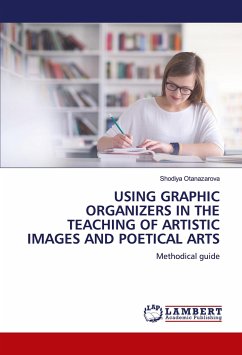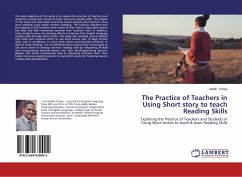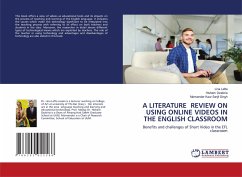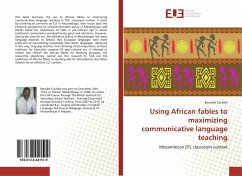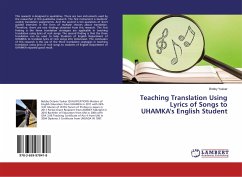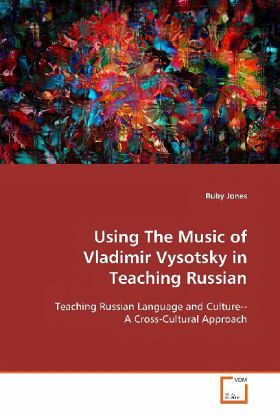
Using The Music of Vladimir Vysotsky in Teaching Russian
Teaching Russian Language and Culture--A Cross-Cultural Approach
Versandkostenfrei!
Versandfertig in 6-10 Tagen
32,99 €
inkl. MwSt.

PAYBACK Punkte
16 °P sammeln!
Using vocal music in the classroom to teach languageand culture can encourage students to take charge oftheir own learning. Most students who study languageshave elevated expectations and the problem isexacerbated by commercial products which promisethat, You will speak like a native in months! Whenthese high expectations are not met, many studentsstop trying long before they approach their goal.Oneway to help students not lose hope is to help themimprove their language skills themselves beyond thatusually attainable in the classroom. By introducingstudents to the music of the Soviet bard Vlad...
Using vocal music in the classroom to teach language
and culture can encourage students to take charge of
their own learning. Most students who study languages
have elevated expectations and the problem is
exacerbated by commercial products which promise
that, You will speak like a native in months! When
these high expectations are not met, many students
stop trying long before they approach their goal.One
way to help students not lose hope is to help them
improve their language skills themselves beyond that
usually attainable in the classroom. By introducing
students to the music of the Soviet bard Vladimir S.
Vysotsky early in their language learning, the
Russian language teacher can provide versatile,
authentic language material. The songs by Vysotsky
are similar to the blues, purported to be the
outgrowth of suffering and unique to the USA. Jim
Crow and Communism shared a trait a large number of
citizens without power or enforceable rights. The
author contends that Vysotsky s style of music arose
from such a situation in the USSR. The historical
similarities and the music which arose from them are
the foundation for one approach to teaching Russian
language and culture.
and culture can encourage students to take charge of
their own learning. Most students who study languages
have elevated expectations and the problem is
exacerbated by commercial products which promise
that, You will speak like a native in months! When
these high expectations are not met, many students
stop trying long before they approach their goal.One
way to help students not lose hope is to help them
improve their language skills themselves beyond that
usually attainable in the classroom. By introducing
students to the music of the Soviet bard Vladimir S.
Vysotsky early in their language learning, the
Russian language teacher can provide versatile,
authentic language material. The songs by Vysotsky
are similar to the blues, purported to be the
outgrowth of suffering and unique to the USA. Jim
Crow and Communism shared a trait a large number of
citizens without power or enforceable rights. The
author contends that Vysotsky s style of music arose
from such a situation in the USSR. The historical
similarities and the music which arose from them are
the foundation for one approach to teaching Russian
language and culture.





